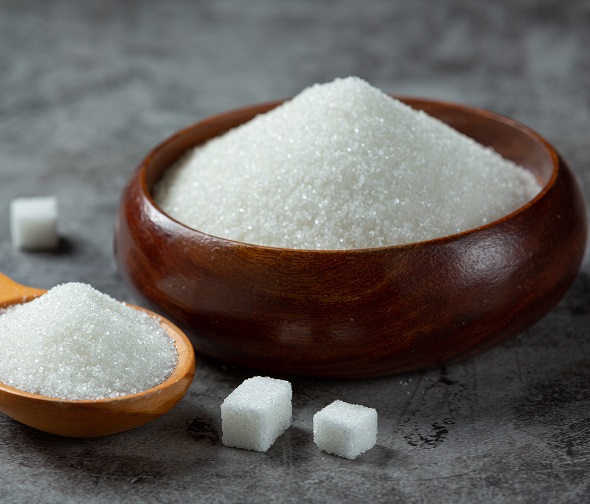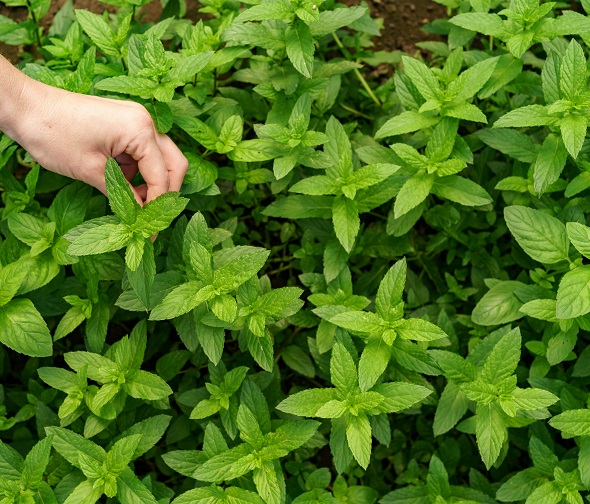In the modern battle against excess sugar consumption, both artificial and natural sweeteners have emerged as popular alternatives. Aspartame and stevia are two of the most common sugar substitutes found in food and beverages today, but they cater to different consumer preferences. Aspartame, an artificial sweetener, is known for its widespread use in diet products, while stevia, a natural plant-derived sweetener, is favored by health-conscious consumers looking for natural alternatives.

Aspartame is a synthetic artificial sweetener developed in the 1960s. It's made by combining two amino acids, aspartic acid and phenylalanine, which are naturally occurring in the body. Aspartame is roughly 200 times sweeter than sugar, meaning only a small amount is needed to achieve the desired sweetness.
Aspartame is most commonly found in products marketed as "Diet" Or "Sugar-free," Such as soft drinks, gum, and low-calorie desserts. While aspartame contains minimal calories, it is categorized as an artificial product, which raises concerns for some consumers who prefer natural food options.

Stevia, in contrast, is a natural sweetener derived from the leaves of the stevia rebaudiana plant, native to south america. The sweetness in stevia comes from compounds known as steviol glycosides, particularly rebaudioside A, rebaudioside D, rebaudioside M and stevioside, which are 200 to 400 times sweeter than sugar.
Stevia has gained traction among consumers looking for plant-based alternatives to sugar, especially those who want to avoid artificial ingredients. It is widely used in natural and organic food products, offering sweetness without added calories, making it a preferred option for people aiming for a more natural diet.
Consumer preferences: Why natural wins
1. Artificial vs. Natural
One of the key differences between aspartame and stevia is the source. Aspartame is artificial, created in laboratories, which may be off-putting to consumers who prioritize natural ingredients. On the other hand, stevia is plant-derived, making it a more attractive option for those seeking clean, natural food choices.
Many consumers are now shifting toward natural products, not just for health reasons but also for environmental and ethical considerations. Stevia, being plant-based and minimally processed, fits well into this trend. Aspartame, as a man-made compound, is less appealing to consumers who are concerned about the long-term effects of synthetic chemicals in their diet.
2. Health consciousness
While both aspartame and stevia are used to cut sugar consumption and reduce calorie intake, stevia tends to align more with health-conscious consumers who are wary of artificial sweeteners. Stevia's reputation as a "Natural" Product gives it a health halo, even though both sweeteners have been approved by major regulatory agencies like the fda.
Aspartame has faced controversy over its long-term safety, with some studies suggesting potential health risks, though none of these claims have been definitively proven. Stevia, on the other hand, is generally considered safe and has fewer reported side effects, adding to its appeal for those seeking a "Clean" Diet.
Health impacts: Aspartame vs. Stevia
1. Aspartame's health effects
Aspartame has been thoroughly researched and approved for consumption by many global health authorities, including the fda and the european food safety authority. Despite this, aspartame has faced some public scrutiny due to concerns about its breakdown products, including methanol, aspartic acid, and phenylalanine. People with phenylketonuria (pku), a rare genetic disorder, must avoid aspartame because their bodies cannot metabolize phenylalanine properly.
Though research has not conclusively linked aspartame to significant health issues, some consumers remain skeptical, particularly about its potential neurological effects and long-term safety.
2. Stevia's health effects
Stevia is widely regarded as safe and has been embraced by the natural health community. It is particularly popular among people with diabetes or those looking to manage blood sugar levels, as stevia has no impact on glycemic response. It also doesn't contribute calories, making it a good choice for people focused on weight management.
Moreover, stevia contains antioxidant properties and may offer additional health benefits beyond sweetness, such as blood pressure regulation. Though further research is needed, stevia's natural composition makes it an attractive option for those seeking holistic wellness.


Taste and application
1. Aspartame's taste
Aspartame has a taste profile that closely mimics sugar, making it a popular choice in soft drinks, candies, and other processed foods. However, aspartame is not heat-stable, which means it loses its sweetness when exposed to high temperatures. This limits its use in cooking and baking.
Some people also report a subtle aftertaste with aspartame, though this is generally less noticeable than with other artificial sweeteners.
2. Stevia's taste
Stevia's taste can be polarizing. While it is incredibly sweet, it often has a bitter or licorice-like aftertaste. Some manufacturers mix stevia with other sweeteners or refine it further to minimize this effect. However, newer forms of stevia extracts, such as rebaudioside a (reb a), have a cleaner, more sugar-like taste, which has broadened stevia's appeal.
Stevia is heat-stable, making it suitable for cooking and baking. This versatility allows it to be used in a wider range of homemade products, such as desserts, sauces, and beverages.
Environmental considerations
As environmental consciousness grows, the impact of food production is becoming a key factor for many consumers.
Aspartame: Aspartame is produced through a series of chemical processes in industrial settings. While its environmental footprint may be relatively low in terms of energy use and resource consumption, it doesn't align with consumers seeking sustainable or plant-based options.
Stevia: Stevia is derived from a plant, and its cultivation is generally considered environmentally sustainable. As a renewable resource, stevia fits within the broader movement toward natural, eco-friendly food production. Additionally, stevia requires minimal land and water compared to sugarcane, making it a greener alternative in the sweetener industry.
Which sweetener is right for you?
Aspartame may be a good choice for those who prioritize a sugar-like taste in processed foods or beverages, especially when calorie control is important. It's a familiar option for diet soda drinkers and offers a low-calorie alternative in a range of products.
Stevia, on the other hand, appeals more to consumers who value natural, plant-based ingredients and are looking for a sustainable, health-conscious sweetener. Its versatility in cooking and baking, along with its natural origin, gives it a broad range of applications for those looking to avoid artificial sweeteners.
Ultimately, the choice between aspartame and stevia comes down to personal preference and lifestyle. If you're focused on reducing artificial ingredients in your diet, stevia may be the better fit. If you prefer a more sugar-like taste in beverages or snacks, aspartame might be more to your liking.
In the debate between aspartame and stevia, it's clear that each sweetener has its pros and cons. While aspartame offers familiarity and sugar-like taste with minimal calories, its synthetic nature and public concerns about safety may make it less appealing to modern consumers. Stevia, with its natural origins and health benefits, is increasingly favored by those seeking cleaner, plant-based alternatives.


Related Recommendation
All images in this article are sourced from: GL Stevia, Pexels, Natvia